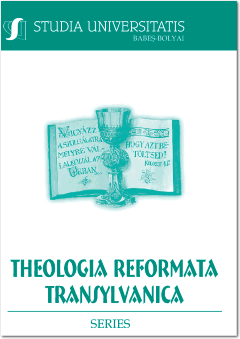ELKOPHAT-E AZ IDŐTLEN BŰN AZ IDŐBEN? VLADIMIR JANKÉLÉVITCH A KVÁZI-BOCSÁNAT EGYIK FORMÁJÁRÓL
CAN THE TIMELESS SIN WEAR OFF WITH TIME? VLADIMIR JANKÉLÉVITCH ON A FORM OF QUASI FORGIVENESS
Author(s): Sándor Béla ViskySubject(s): Christian Theology and Religion, Theology and Religion, Islam studies, Comparative Studies of Religion, Religion and science , Sociology of Religion, History of Religion
Published by: Studia Universitatis Babes-Bolyai
Keywords: war crimes; righteous anger; Le Pardon; deficient remembering; criminal; victim.
Summary/Abstract: Can the Timeless Sin Wear Off With Time? Vladimir Jankélévitch on a Form of Quasi Forgiveness. In Jankélévitch’s opinion, time changes man as it changes the river into which one cannot step twice. Suffering and experience, a pneumatic intertwining of two transcendent things, change both the criminal and the victim; therefore, the crimes can be proscribed because of this futurity. But Jankélévitch states, proscription can by no means replace forgiveness. Forgetting cannot be a moral attitude. Deficient remembering is superficiality, while too intense remembering is rage. But integrating the evil as an experience, using the test of forgiveness as the champion of morality reveals a spiritual greed; a truly moral man does not act as if his injury has not even occurred, although paradoxically, for himself, it indeed has not occurred. According to Jankélévitch, true forgiveness is the greatest gesture of love besides self-giving, which cannot be left to time or oblivion. If it is left to time, we face the grotesque example of the statute of limitations of war crimes, where something which is an unforgivable sin one day, is no longer a sin the next day. This is why forgiveness must be sudden and immediate. Its necessity is not dissolved by the length of the perpetrator’s penance, or by the victim’s forgetting which attenuates the rage and the early pain, while the spark of rancor is still preserved deep down in the soul. At the same time, forgiveness does not undo the crime. Moreover, according to Jankélévitch, there is a difference between personal injury and crimes committed against world order. Whoever is angry with the perpetrator of the latter is rightful in being so, and forgiveness would mean to betray this rightfulness. This is the “righteous anger”, which is an expression of faithfulness to values and martyrs. Leaving a timeless crime up to time is not a viable path: time can heal, but it cannot redeem.
Journal: Studia Universitatis Babeș - Bolyai Theologia Reformata Transylvanica
- Issue Year: 63/2018
- Issue No: 1
- Page Range: 60-74
- Page Count: 15
- Language: Hungarian

